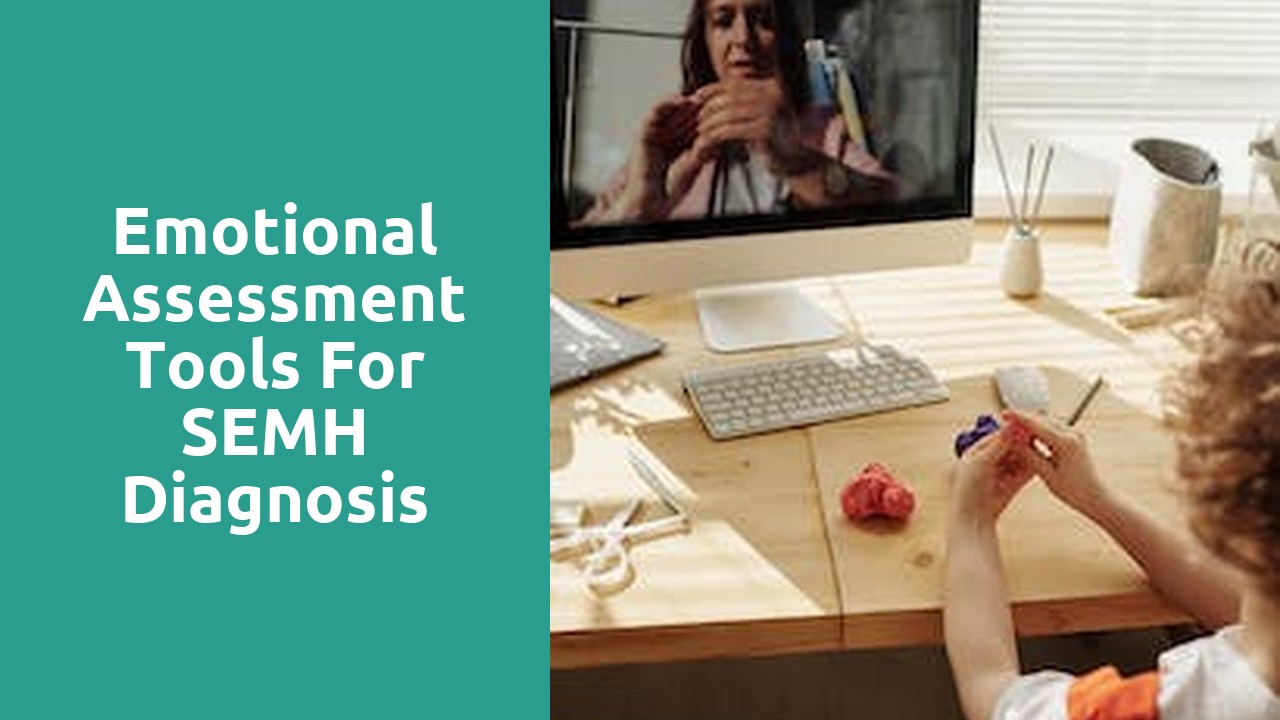

Understanding SEMH: Evaluating Emotional Well-being
In today's fast-paced, interconnected world, it is more important than ever to prioritize and evaluate our emotional well-being. Emotional well-being refers to the state of our mental and emotional health, encompassing our ability to cope with stress, manage our emotions, and maintain positive relationships. It influences our overall quality of life and can have a significant impact on our physical health as well.
Evaluating our emotional well-being involves taking the time to reflect on our feelings, thoughts, and behaviors. It requires self-awareness and an honest examination of how we are coping with life's challenges. By assessing our emotional well-being, we can identify areas that may need attention and develop strategies to improve our mental and emotional health. This process can lead to greater self-awareness, improved self-regulation, and enhanced overall well-being.
Recognizing Emotional Challenges: Assessing SEMH
Assessing and recognizing emotional challenges in individuals is an essential aspect of understanding and supporting their social, emotional, and mental health (SEMH). By identifying and evaluating emotional difficulties, professionals can provide targeted interventions and support systems that are tailored to each individual's unique needs. This process requires a comprehensive and holistic approach that takes into account various factors, including behavior patterns, social interactions, and emotional reactions.
One key component of assessing SEMH is the use of objective tools and assessments. These tools help professionals gain insights into an individual's emotional well-being by measuring various factors such as self-regulation skills, social-emotional competencies, and resilience levels. By employing evidence-based assessments, professionals can gather valuable data that informs their understanding of an individual's emotional challenges and contributes to the development of effective intervention strategies.
In conclusion, recognizing emotional challenges and assessing SEMH is crucial for promoting well-being and providing appropriate support. Through the use of objective tools and assessments, professionals can gain valuable insights into an individual's emotional well-being and design interventions that address their unique needs. This comprehensive approach ensures that individuals receive the support they require to navigate emotional challenges and enhance their overall SEMH.
Emotional assessment is a powerful tool that enables us to gain deeper insights into the emotional well-being of individuals. By uncovering the nuances of their feelings, emotions, and psychological state, we can better understand their mental health and provide the necessary support and interventions. Through a comprehensive evaluation of emotional challenges, we can identify patterns, triggers, and specific areas of concern that may be impacting a person's overall well-being.
One of the key benefits of emotional assessment is its ability to reveal underlying issues that may not be immediately apparent. It goes beyond surface-level observations and allows us to delve into the roots of emotional challenges. This enables practitioners to tailor their interventions and therapies to address specific needs and promote healing and growth. Moreover, emotional assessment provides a scientific and objective approach to understanding emotional difficulties, ensuring that interventions are evidence-based and effective. It empowers practitioners, parents, and educators with the knowledge and insights needed to support individuals with SEMH effectively.
Unlocking Insights: Tools for SEMH Diagnosis
Tools for SEMH diagnosis play a crucial role in gaining valuable insights into the emotional well-being of individuals. These tools help professionals assess and evaluate the emotional challenges individuals might be facing. By understanding the root causes of emotional difficulties, experts can develop effective interventions and provide appropriate support.
One of the key tools used for SEMH diagnosis is the standardized assessment measures. These measures provide quantitative data that indicate the severity of emotional challenges an individual is experiencing. By utilizing validated assessment tools, professionals can gather objective information about an individual's emotional well-being. This data serves as a valuable foundation for developing personalized treatment plans and monitoring progress over time. The insights gained from these tools can uncover hidden aspects of emotional health and guide professionals in providing targeted support tailored to each individual's unique needs.
The key to effective emotional assessment lies in employing a comprehensive and holistic approach. It is crucial to go beyond superficial observations and delve deeply into the individual's emotional well-being. This requires the integration of various assessment tools and techniques, such as interviews, observations, self-report measures, and standardized psychological tests.
One important aspect of effective emotional assessment is establishing a trusting and supportive rapport with the individual being assessed. Creating a safe and non-judgmental space allows for better communication and willingness to open up about one's emotions. Additionally, it is essential for the assessor to possess strong empathetic skills and active listening skills. By actively listening and showing genuine empathy, the assessor can gain a better understanding of the individual's emotions and experiences.
Navigating the landscape of SEMH diagnosis can be a complex and challenging journey. As educators, parents, and professionals strive to understand and support students' emotional well-being, accurate assessment and diagnosis are crucial. The field of Social, Emotional, and Mental Health (SEMH) is multifaceted, encompassing a wide range of emotional challenges that can affect a student's overall well-being and academic success.
A key aspect of navigating this landscape is staying informed about the latest tools and techniques for SEMH diagnosis. From standardized assessments to qualitative observation methods, there are various approaches available to help professionals gain insights into a student's emotional struggles. Understanding the strengths and limitations of different assessment tools is essential for accurate diagnosis and effective intervention. By equipping ourselves with these resources, we can better support students and promote their emotional well-being within the educational setting. Navigating the landscape of SEMH diagnosis requires dedication, ongoing learning, and collaboration among educators, parents, and mental health professionals.